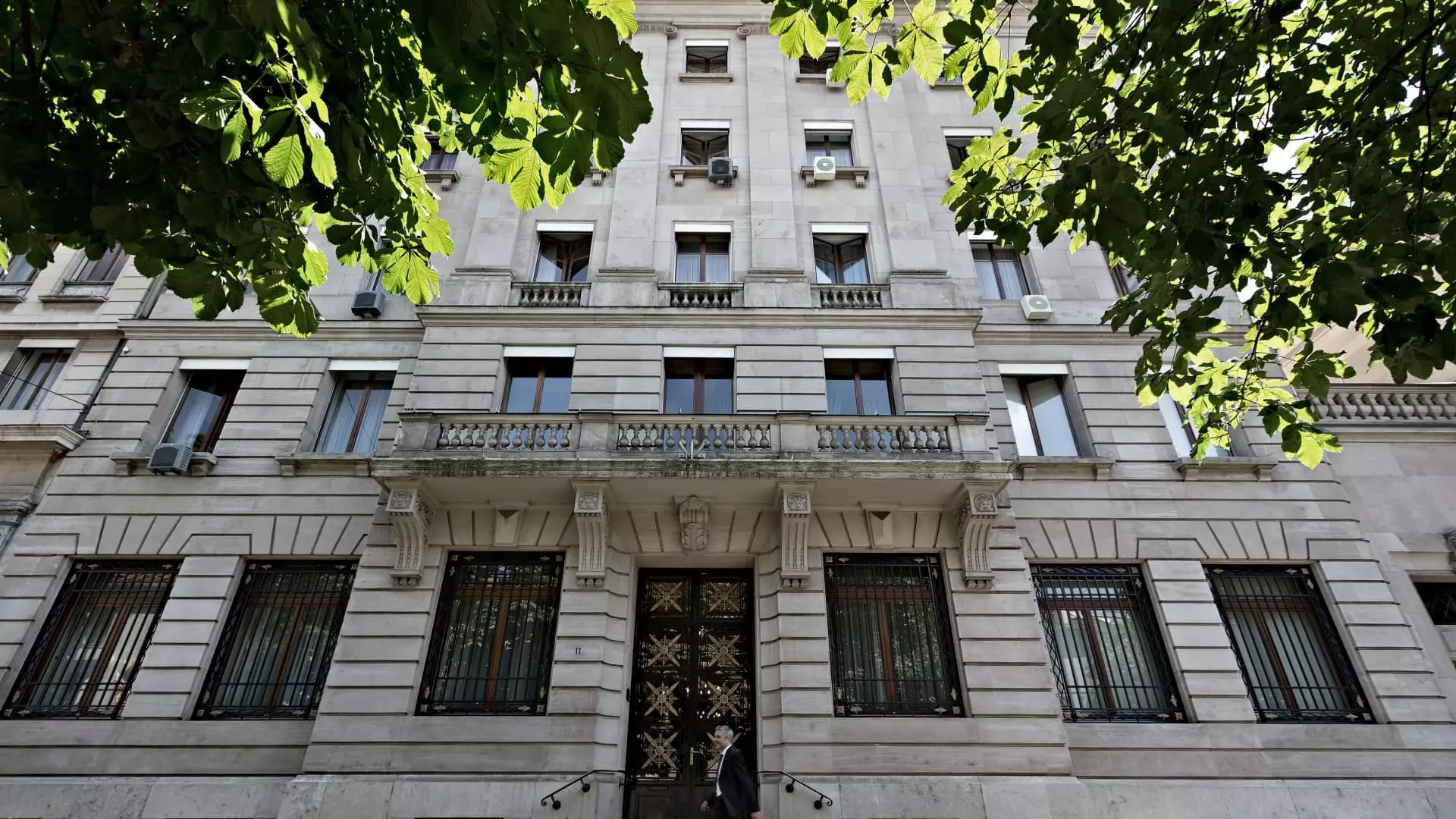Lombard Odier, one of Switzerland’s venerable financial institutions, has found itself entangled in a serious legal quagmire. The Swiss Attorney General’s office recently issued an indictment against the bank and a former employee for “aggravated money laundering,” a charge that highlights the darker side of wealth management and the potential complicity of financial institutions in facilitating criminal activities. The crux of the allegations lies in the concealment of illicit funds linked to Gulnara Karimova, the daughter of the late Islam Karimov, the controversial former president of Uzbekistan. This case has potent implications not just for Lombard Odier but for the integrity of the Swiss banking sector as a whole.
Gulnara Karimova, a figure previously known for her prominence and influence in Uzbekistan, is currently serving time in a domestic prison for her involvement in a range of corrupt practices. Indicted by the Swiss Attorney General in 2023, she allegedly laundered funds acquired through criminal activities conducted between 2005 and 2012. The connection to Lombard Odier is particularly alarming as it suggests that even established banks may sometimes overlook the source of wealth moving through their systems. The indictment suggests that significant amounts of these laundered funds may have been handled by Lombard Odier accounts in Geneva, thereby implicating the bank’s internal controls and risk management protocols.
The investigation into Lombard Odier commenced in 2016, following efforts from the banking institution itself to report suspicions to Swiss authorities. This proactive approach could be interpreted as the bank’s attempt to maintain compliance with regulatory standards, but it raises questions about the effectiveness of their controls to begin with. In their defense, Lombard Odier has called the allegations “unfounded” and has stated their intention to fight these charges vigorously. This brings to light an important aspect of financial regulation: the challenge of balancing business interests with legal obligations to prevent money laundering and other financial crimes.
This case is emblematic of the broader pressures faced by traditional banking institutions within an evolving regulatory landscape. The fact that such serious charges are leveled against a long-standing institution like Lombard Odier reflects an environment where oversight is becoming increasingly stringent. As global financial systems grow more interconnected and as awareness of financial crime rises, banks must take more significant accountability for the provenance of the funds they handle. The indictment against Lombard Odier may serve as a turning point, prompting other institutions to review and enhance their operational protocols regarding the identification and reporting of suspicious activities.
The Lombard Odier indictment underscores the urgent need for effective compliance systems within financial institutions. As legal frameworks tighten and societal expectations of corporate behavior evolve, banks that fail to adapt are likely to find themselves on the wrong side of the law. The outcome of this case will not only affect the future of Lombard Odier but could also set a precedent for how similar cases are handled in the future, prompting a reevaluation of responsibilities and practices across the banking industry. The pressures of regulatory scrutiny are now more pronounced than ever, highlighting the necessity for all financial entities to uphold ethical standards and maintain vigilance against potential abuse of their services.

